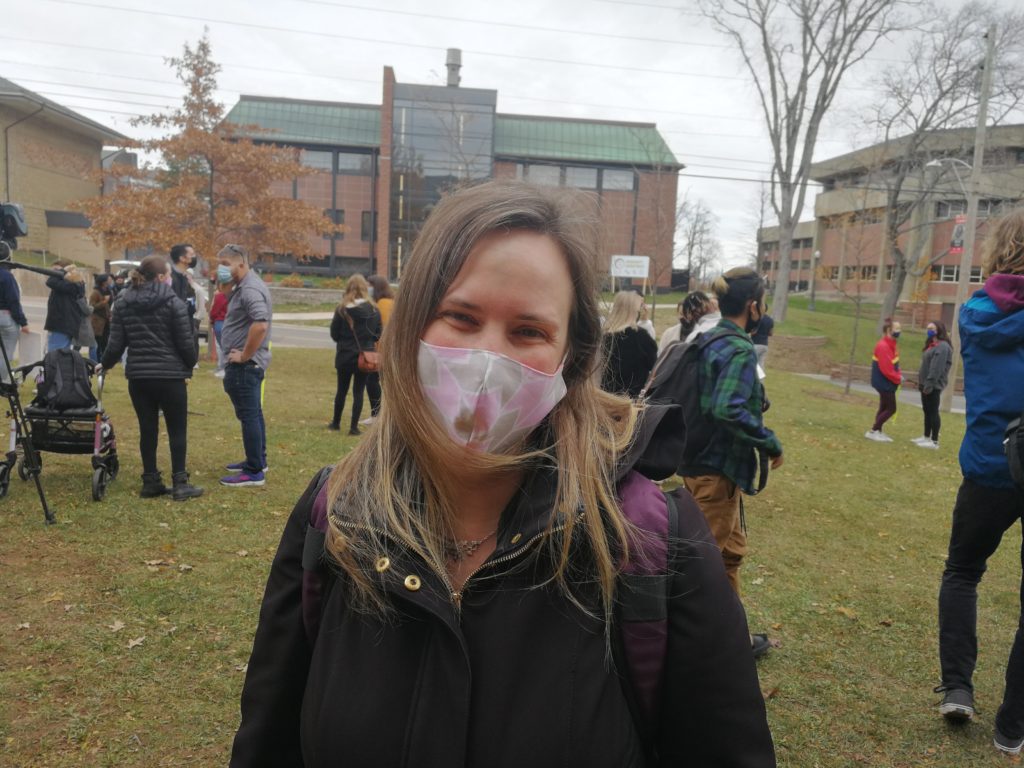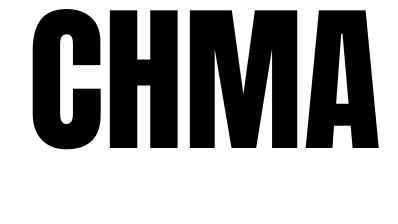
Mount Allison has issued a progress update on its efforts to address concerns over how sexual violence is handled on campus.
In a letter Monday to Mount Allison students, staff and faculty, university president Jean Paul Boudreau and all vice-presidents announced the appointment of two co-chairs for the school’s new Sexual Violence Prevention Working Group.
Psychology professor Dr. Lisa Dawn Hamilton and student Michelle Roy will oversee the group.
Roy started the movement to highlight concerns over how sexual assault reports were being handled by the school with a social media post in early November, and then a protest on campus attended by hundreds of people on November 12.
Dr. Lisa Dawn Hamilton spoke at that protest, and is the founder of the Mount Allison Sexual Health research lab. She also teaches psychology and hosts the podcast Do We Know Things? which looks at popular understandings, and misunderstandings, about sex.
Erica Butler spoke with Dr. Hamilton Wednesday to find out a bit more.
TRANSCRIPT:
ERICA BUTLER:
So Dr. Hamilton, what do you see as the the key job of this working group?
LISA DAWN HAMILTON:
I think the goal of the working group is really going to be to assess how sexual violence has been addressed at Mount Allison University. And then go through research, contact other universities, really dig in to find out what best practices are, to be able to then make recommendations on the issues pointed out in the announcement from the president. So those are education and prevention of violence, supporting survivors, and then also the handling of harassment and assault cases on campus.
EB:
Right, we’ve sort of been talking about this issue as if there’s just one aspect to it. But there really is, there’s a few different components here and they’re very different from each other, aren’t they?
LDH:
Yeah, absolutely. I think they’re all interconnected. But I do think we need to take a holistic approach to this issue and a campus wide approach to this issue, to address all of these different components.
EB:
Now, who do you think you’ll be consulting in the course of this work?
LDH:
So on campus, we’re going to reach out to all sorts of groups where this might be relevant. So groups that are concerned with violence on campus, so for example, the Rose Campaign. But also other groups where people are marginalized, and more likely to be exposed to violence and harassment, like the Indigenous Support Group, Catalyst—which is our queer, straight alliance group, as well as athletic teams. We’re hoping to have involvement from the athletic community, as well as faculty who have expertise in this area.
And then externally, there’s a few universities across Canada who do a really good job of, particularly of supporting survivors, but also ones that do a good job of education. And so we’ll be reaching out to them. And then there’s also a plan to have an external organization come in and do a full review.
EB:
Right, and that’s one of the immediate priorities, at least that Dr. Boudreau had identified in his letter to students. You folks would be helping to identify that external third party reviewer for Mount Allison’s policies, is that right?
LDH:
Yes. So the external reviewer will be chosen in consultation with the working group.
EB:
Okay. And I guess the first job you have is to recruit the rest of your group or the rest of your team?
LDH:
Yes. So currently, it is just me and Michelle Roy, the student who started the movement. And so we’ll be meeting soon to make the next steps for recruiting other members of the working group.
EB:
And the university said in their letter, they won’t be following through on hiring a full time person for education and survivor support yet, until after the working group has finished, after the external review is done. Does that make sense to you?
LDH:
Yes, absolutely. We really want to take our time and make sure we’re using best practices for supporting survivors and education on campus. So I think that requires time and research to make sure that it’s done to the best of our abilities.
And in the meantime, we have the Crossroads or the Southeastern Sexual Assault support organization, who will be located in Sackville to provide support for students who are experiencing harassment or sexual violence.
EB:
Is there anything else that we should know about what’s going on?
LDH:
At this point, I don’t think so. It’s really in its beginning. I’m very excited for the possibility of the reform that can happen and the change that we can see on campus. I’m really hoping to make Mount Allison, a leader in this area of sexual violence prevention and support.
EB:
It certainly sounds like so far the moves that the university has made appear to be serious, and I guess this is part of the follow through that we’re seeing right now.
LDH:
Yes, absolutely.
EB:
All right. Well, we’ll check in with you again, as this all progresses.
LDH:
Thank you very much.
